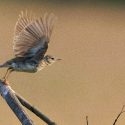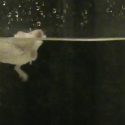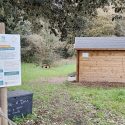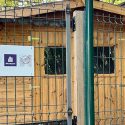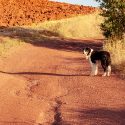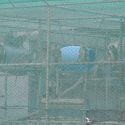Victory for birds: traditional hunting banned for good!
Victory for birds: traditional hunting banned for good!
06.05.2024
France
Victory for birds: traditional hunting banned for good!
Wildlife
It was a long and difficult battle, from the administrative courts to the Conseil d’État, via the European Court of Justice. Years later, after dozens of legal actions and hundreds of thousands of skylarks saved, we finally got the courts to put an end to traditional hunting. One Voice and the Ligue pour la protection des oiseaux (LPO) have appealed to the Conseil d’État, which has annulled the decrees authorizing capture with “pantes” (nets) and “matoles” (cages) in the South-West of France. For the first time in decades, no bird in France can be subjected to these particularly cruel « leisure activities ».
No more pantes and matoles!
Every year, in the Landes, the Lot-et-Garonne, the Gironde and the Pyrénées-Atlantiques departments, hunters were allowed to kill tens of thousands of birds with matoles and pantes. They used individuals as « decoy-birds » to attract the skylarks before activating their traps: cages and nets that collapsed violently, pinning the animals to the ground. All the trappers had to do was pick them up and finish the job.
Every year since 2021, we’ve managed to get the Conseil d’État to urgently suspend these outdated practices. This time, we went even further and, together with the LPO, demanded the definitive repeal of the decrees authorizing the very principle of these devices. And, once again, the courts ruled in favor of the birds!
Will the State continue to persist? We won’t let our guard down!
This decision is the fruit of a long struggle against these traditions, which cause thousands of animals to suffer for the sole purpose of entertaining a handful of individuals. After our victory before the European Court of Justice in 2021, we had already obtained a ban on glue, then on “tenderies”, which trapped the birds using strings, then on “tendelles”, which crushed the birds under a rock. All that remained were matoles and pantes. With this decision, for the first time in decades, traditional hunting is no longer authorized in France!
But as we all know, the State will do anything to satisfy hunters, as demonstrated by its authorization of « scientific experiments » in autumn 2023, the sole aim of which was to justify these archaic practices (and whose suspension we largely succeeded in obtaining)… Despite this victory, which marks a crucial stage in the fight, we will not drop our guard: if the government continues to be relentless, we will be there!
